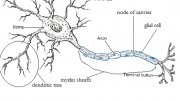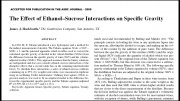
The Master of Forensic Science in Forensic Chemistry is accredited by the Forensic Science Education Programs Accreditation Commission (FEPAC) and trains students to become laboratory analysts in the fields of forensic drug chemistry or trace evidence analysis. Drugs and their analyses are presented to the students through courses in medicinal chemistry and through the special topics course on the analysis of dosage forms of drugs. Trace evidence analysis is covered three courses:
- Trace Evidence (hair and fibers)
- Forensic Chemistry I (glass and soil)
- Forensic Chemistry II (paper, paint, ignitable liquids and explosive residues)
All students concentrating in forensic chemistry are expected to complete research projects and to present their research results either in the graduate seminar or at a forensic science meeting (such as those of the American Academy of Forensic Sciences or the Mid-Atlantic Association of Forensic Scientists). Students concentrating in forensic chemistry are strongly encouraged to participate in at least one internship at a forensic science laboratory in the Washington, D.C. area.
Prerequisite: A bachelor's degree in chemistry from an accredited university with course work through instrumental analysis or permission of the department. Preference will be given to students who have extensive laboratory experience with instrumentation (e.g. undergraduate research, internships, and work-study programs).
Required: The general requirements stated under Columbian College of Arts and Sciences. The program of study consists of 36 credit hours of approved course work. All candidates are required to pass a written Master's Comprehensive Examination.
Required Courses
FORS 6292 Graduate Seminar (Entry)
FORS 6206 Trace Evidence Analysis
FORS 6215 Criminal Law for Forensic Scientists
FORS 6234 Medicinal Chemistry I
FORS 6235 Medicinal Chemistry II
FORS 6238 Forensic Chemistry I
FORS 6239 Forensic Chemistry II
FORS 6240 Forensic Drug Analysis
Source: forensicsciences.columbian.gwu.edu
You might also like:
















Forensic science is a multidisciplinary subject used for examining crime scenes and gathering evidence to be used in prosecution of offenders in a court of law. Forensic science techniques are also used to examine compliance with international agreements regarding weapons of mass destruction.
The main areas used in forensic science are biology, chemistry, and medicine, although the science also includes the use of physics, computer science, geology, and psychology. Forensic scientists examine objects, substances (including blood or drug samples), chemicals (paints, explosives, toxins),…
The role of forensic science in all circumstances is to reveal the truth, in serious crimes. This is done through the gathering of evidence. This is done through samples, photographs, video analysis and written documentation.
Forms of evidence may include: DNA, murder weapon, finger prints at crime scene.